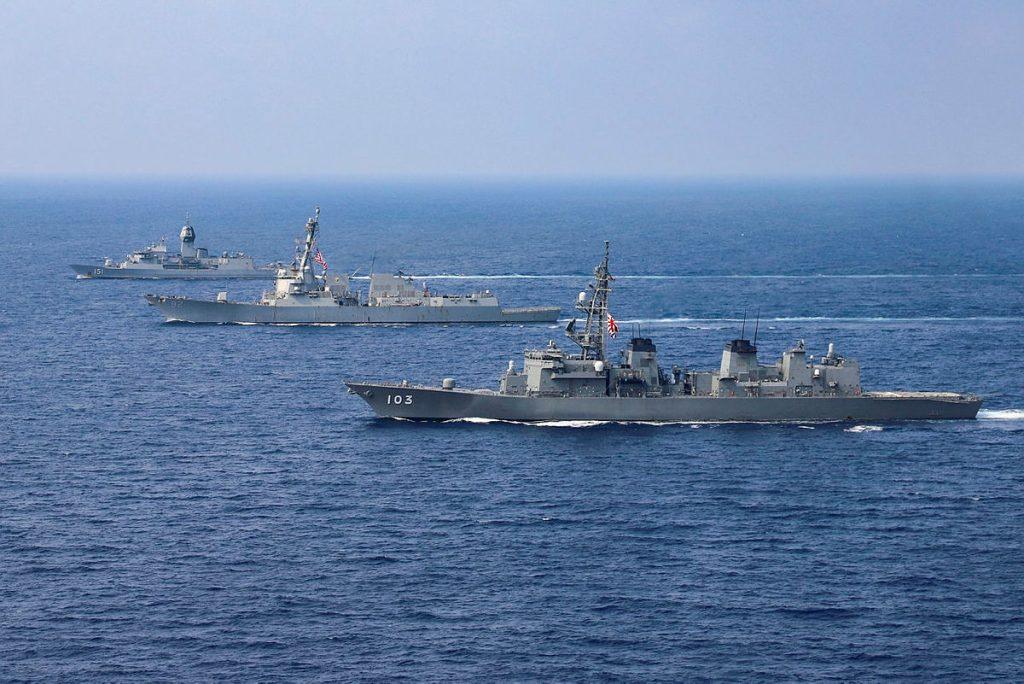
‘This is Australia’s most challenging strategic environment since the Second World War. And looking back to the lead-up to the Second World War provides important lessons about the need to invest in defence.’
— Minister for Defence Industry Pat Conroy, National Press Club address, 28 November 2023
Last month, Minister for Defence Industry Pat Conroy took to the stage at the National Press Club to address concerns that Australia’s planned acquisition of nuclear-powered, conventionally armed submarines under the AUKUS arrangement lacked a social licence.
Defending the $368 billion acquisition, Conroy outlined the challenging strategic circumstances Australia now faces. The situation had deteriorated further since the release of the defence strategic review in April 2023, he noted, with war in the Middle East and increasingly unsafe actions of Chinese military aircraft and warships in the South China Sea and Northeast Asia.
Despite the geographical realities that are driving Australia’s acquisition of nuclear-powered submarines, many argue that the government lacks public support for such a significant acquisition. That is borne out in the latest United States Studies Centre poll, which indicates that only 49% of Australians support acquiring these submarines. The eye-watering cost hasn’t won the plan many friends in a country experiencing a cost-of-living crisis.
With this background firmly established, Conroy gave a commendable defence of the acquisition highlighting the tactical, operational and strategic realities that justify this bold capability direction.
The address seemed on point and on the rails until journalist Kym Bergman asked about defence funding. When I asked Defence Minister Richard Marles the same question in September at the ASPI conference, he responded that ‘strategy without money is just hot air’.
Bergman noted that ASPI’s budget analysis, The big squeeze, released on 29 May, said core funding for the Defence Department had been reduced at a time when unprecedented demands were being placed on it. ‘Between 2023–24 and 2025–26, defence funding drops from $154 billion to $152.5 billion,’ Bergman said.
The minister rejected the assertion, saying: ‘ASPI were picking and choosing between what parts they counted and what parts they didn’t count. I urge you to look at the defence papers. Every year the defence funding goes up.’
His response highlighted the greatest single risk to Australia’s defence: the ‘squeezing’ of the defence budget.
The issue that became readily apparent in that response is that the government is still not ready to admit that the defence budget is under extreme pressure at a time when Conroy had stated that investment is needed.
Budgets are not a matter of interpretation, or perception; they are simply a matter of numbers and maths. As part of the process of making the numbers work, Defence is compensated for fluctuations in the exchange rate and is forecast to receive $4 billion in compensation over the next three years. This is, of course, not real money; it simply acknowledges the fact that Defence pays more for capabilities when the Australian dollar is low.
When you remove the compensation for foreign exchange fluctuations, the real funding of Defence becomes clear. In the March 2022 budget forecast, Defence core funding was predicted to be $154.0 billion for the next three financial years. The budget delivered in May 2023 forecasts $156.5 billion for Defence over the same period. That’s an increase, yes—but it’s not a real increase. When you remove the $4 billion compensation for exchange rate fluctuations, Defence receives $152.5 billion dollars across the next three years.
This is a reduction of $1.5 billion for the defence budget over the next three years compared with last year’s forecast.
That was highlighted in ASPI’s defence budget brief and confirmed by Defence’s chief financial officer, Steven Groves, in Senate estimates on 30 May. This reduction in forecast defence spending is a matter of public record.
The pain of the reduction in budget forecasts of Defence’s core funding is further exacerbated by the doubling of inflation eroding the purchasing power of the defence budget. All of this is happening as additional requirements from the DSR and AUKUS initiatives are squeezed into the budget.
The government has forecast an increase in defence spending between 2027–28 and 2032–33 of $30.5 billion, with Treasury indicating a growth in defence spending as a percentage of GDP from 2.05% to 2.30% over the same time. But with wars in Europe and the Middle East, and with the chances of a miscalculation in the South China Sea increasing daily, we must ask ourselves as a nation whether we can wait until 2027–28 for defence funding relief.
In May, my co-authors and I wrote in ASPI’s defence budget brief: ‘The strategic context for the 2023–24 defence budget is complex and extremely challenging. There’s currently a gap, and quite a significant one, between the rhetoric of the 2023 DSR and the 2023–24 defence budget (and forward estimates).’
This remains as accurate today as it was in May. Denying the simple fact that the defence budget is under pressure does little to assist the conversation about the stark strategic circumstances we find ourselves in. In the end, it’s just maths.